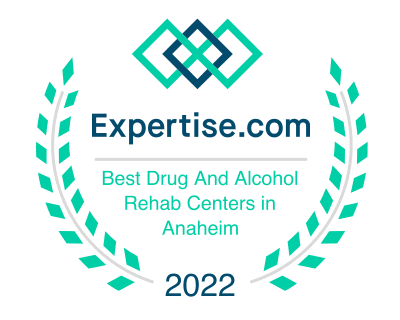What Role Does Willpower Play in Addiction Recovery?
Although willpower definitely plays a role in addiction recovery, it is not the only important factor. Support from friends and family, professional help, and self-awareness are all critical factors in addiction recovery.
What Is Willpower?
Willpower is the ability to resist short-term temptations in order to meet long-term goals. It’s the ability to stay on task and focus despite distractions. It’s the strength to say no even when you really want to say yes. And it’s the power to do what’s best for yourself, even when it’s not easy.
Willpower is the ability to:
- Defer gratification
- Resist short-term temptations in order to meet long-term goals.
- Overcome an unwanted thought, feeling, or impulse.
- Employ a calm cognitive system of behavior rather than a heated one.
- Conscious, effortful restriction and constrain.
What Is Addiction?
Addiction is a complex disease that affects both the mind and the body, and it’s not something that can be overcome by sheer force of will alone. That’s why it’s so important to seek professional help if you’re struggling with addiction. We tend to oversimplify concepts such as powerlessness and willpower because it’s easier to simplify them into black-and-white ideas than to think about the complex reality.
Addiction Is a Medical Condition
The effects of addiction on the nervous system are both profound and complex. When someone is addicted to a substance, their brain chemistry changes in a way that makes it very challenging for them to stop using the substance even if they want to; this is because addiction causes changes in the way the brain processes rewards and pleasure.
Addiction can also have a negative impact on the function of the nervous system overall. It can damage nerve cells, interfere with communication between neurons, and cause inflammation in the brain. These adverse effects can lead to mood, thinking, movement, and coordination problems. Additionally, addiction can increase a person’s risk for certain neurodegenerative diseases like dementia and Parkinson’s disease.
Why do people become addicted to drugs? This is a question that Researchers have been asking themselves for years. They may mistakenly think the reason they use substances like heroin and cocaine lacks moral principles or willpower. Still, in reality, addiction can be an incredibly complex medical condition with many factors responsible.
Cognitive Dissonance
In psychology, we talk about the concept of “cognitive dissonance.” This is when you have two conflicting beliefs or ideas in your head simultaneously. For example, you might believe that you’re a good person but then do something bad. This creates dissonance because your beliefs don’t match up. To reduce this dissonance, you might try to convince yourself that what you did wasn’t actually bad (i.e., rationalize it). The same thing happens with concepts like powerlessness and willpower; it is much easier to oversimplify them than to understand them clearly, especially concerning addiction disorders.
The Damaging Effects of Admitting Powerlessness
When you accept powerlessness towards your thoughts and actions, you naturally feel weak and, consequently, defeated. Being powerless towards addiction means you feel like you can’t control your addiction, no matter how much you want to. It means that your addiction has taken over your life and that you feel like you’re stuck in a never-ending cycle of wanting to quit but not being able to. It means that your addiction has caused you pain and heartbreak and that it’s been difficult for you to maintain healthy relationships and stability.
Although addiction is a powerful force that often seems to override our best intentions and controls, it is possible to overcome it. You may feel like you’re stuck in a cycle of addiction and relapse and that there’s no way out. But remember, you are not powerless – you have the power to get help and to overcome your addiction. With treatment, support and willpower, you can reclaim your life from addiction and regain control of your life.
Can Willpower Be Useful in Addiction Recovery?
Having the willpower to achieve any goal is always a helpful element. However, willpower alone is not enough. It’s crucial to have a support system in place, whether friends and family members who are supportive or a therapist or counselor who can guide you through the recovery process. With the right support system in place, willpower can be a powerful tool for addiction recovery.
Willpower is like a muscle – it gets tired but can be strengthened with practice. The more you use it, the better it becomes. So don’t give up on yourself – keep using your willpower every day, and you’ll be amazed at what you can achieve.
Is Willpower Enough to Conquer Addiction?
While willpower is one of the greatest human strengths, addiction is a medical condition that directly affects brain function, which causes compulsive drug and alcohol seeking and use, despite harmful consequences. A condition that is greatly misunderstood as a moral failing or a lack of willpower. Although willpower is a crucial factor, is it is not enough to overcome addiction.
People with struggling addiction often need help from qualified medical professionals to overcome this dreadful condition. Fortunately, neuroscience has evolved significantly in the last 20 years. Treatment for those struggling with addiction, including medically assisted detoxification, can effectively help people come off their substances, control their cravings and finally eliminate substance abuse in its entirety.
Conclusion:
It is possible to regain power over addiction. Addiction can be seen as a learned behavior that provides short-term relief or pleasure but ultimately creates more problems than it solves. The first step to recovery is realizing that you have a problem and want to do something about it, which is when willpower comes into play.
The second step is finding help. There are multiple addiction treatment options available, and it’s essential to find one that fits your needs. Treatment should address both the physical and psychological aspects of addiction. Psychotherapy or other mental health professional support can also help you stay emotionally happy and maintain sobriety.
Lastly, it takes work to stay sober, and you will need to make changes in your lifestyle and daily habits to avoid temptation and relapse. Recovery is not easy, but it is possible and well worth it.
Call now to speak confidentially with an addiction expert
Sources:
- WebMD: 4 Surprising Facts About Willpower
- NIH: Addiction Science
- Lifehack: How to Increase Willpower and Be Mentally Tough
- NIH: Willpower is a form of, but not synonymous with, self-control
Reviewed by Clare Waismann, RAS / SSUDCC, Founder of Domus Retreat®
All topics for the DomusRetreat.com blog are selected and written based on high editorial quality standards and cited source material. Clare Waismann, Registered Addiction Specialist (RAS), Substance Use Disorder Certified Counselor (SUDCC), and founder of Domus Retreat and Waismann Method®, reviews articles for accuracy, credibility, and relevancy. Clare Waismann is an authority and expert on opioid dependence and related topics covered on the DomusRetreat.com blog. Please see our Terms of Service for additional information and disclaimers regarding third-party sources and content for informational purposes only.







